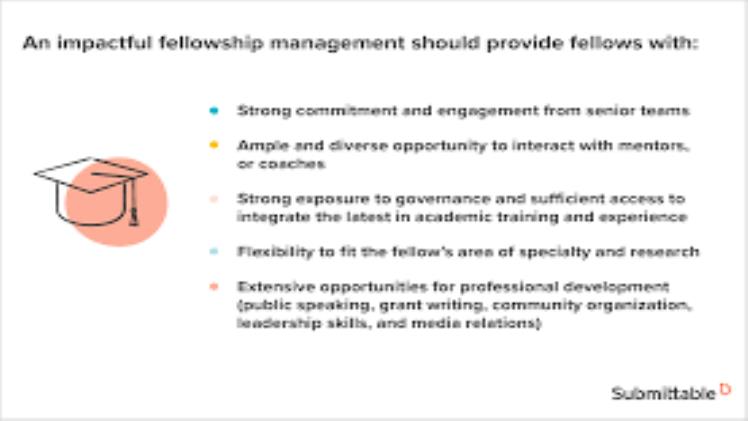Applying For a Fellowship

Fellows provide fully-funded opportunities for independent exploration, research, English teaching, graduate study, arts projects or professional experiences within any one year in either the US or abroad. Each program is tailored towards a student’s academic field of study and supported by an external sponsoring organization.
Fellowship can refer to many things; most commonly it refers to merit-based scholarships for undergraduate students to fund their academic pursuits. But in academia it also refers to on-the-job learning opportunities available for advanced degree students or those already holding doctorates – often part of research projects where skills that will benefit future employment can be developed during short-term placements known as fellowships.
Applying for fellowships is an invaluable way of discovering more about yourself and your career path, regardless of whether you end up receiving one or not. Writing and revising applications helps refine ideas while honing communication skills – as well as teach time management essential for successful careers.
One of the great advantages of fellowships is working alongside established scholars in your field, exposing you to cutting-edge research while building up a network of contacts that could open doors to job opportunities later. Indeed, many fellowship programs lead directly to job offers at program completion!
Not every fellowship will suit you perfectly, so the first step to finding one that’s just right for you should be doing your research and exercising due diligence. Talk to current and past fellows in your field of interest for advice; also, contact advisors or professors about any fellowship programs they might know of that might help as well.
Finally, ensure that you’re exploring all possible options available to you. This means evaluating each fellowship’s requirements and taking the time to understand what each fellowship involves before making your choice. Don’t get bogged down in details: take time out to focus on whether a fellowship meets your criteria or not.
Once you know your field and requirements for it, the next step should be searching. Start broad and gradually narrow your focus as you progress. Checking the iGrad database or consulting advisors or professors regarding what they know can be helpful in selecting an effective starting point; LinkedIn provides great opportunities for connecting with potential mentors in the field and seeking their suggestions – good luck with this step!